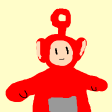-
Posts
134 -
Joined
-
Last visited
-
Days Won
4
javalang last won the day on August 22 2017
javalang had the most liked content!
About javalang
- Birthday April 26
Contact Methods
-
Website URL
johann.langhofer.net
Profile Information
-
Gender
Male
-
Location
Salzburg, Austria
-
Interests
3D-Graphics, electronics, music, drawing and much much more...
Recent Profile Visitors
2,429 profile views
javalang's Achievements
Newbie (1/14)
87
Reputation
-
OK, last message, the DS4 Controller is mapped as a BABYLON.GenericPad and has the id: Wireless Controller (STANDARD GAMEPAD Vendor: 054c Product: 09cc). The image below shows the button values. Would be fine if someone creates a class for this widespread controller
- 9 replies
-
- webvr
- controller
-
(and 1 more)
Tagged with:
-
It was soo simple -> I didn' realize that chrome also have a develpment-browser version for mobiles (chrome-Dev) , I installed the browser and enabled the chrome://flags: WebVR and Gamepad extensions ->voila Gamepad Tester is running using DS4 wireless on the mobile. BTW, the DS4-controller on the PC (connected via USB) is recognized as BABYLON.GenericPad Now I'm going to figure out which type of controller is attached to the mobile, it's neither a BABYLON.Xbox360Pad nor a BABYLON.GenericPad. There is a controller connected but I have to do some debug now. Thanks for helping me and I hope this info is useful for another people.
- 9 replies
-
- webvr
- controller
-
(and 1 more)
Tagged with:
-
@brianzinn thank you for the link, I tried your method today but unfortenately after some debugging my bluetooth connection was corrupted and I gave up, I will give another try. No I don't, but this is probably because the gamepad API is event-driven (so far I've seen) and the controller is already connected (paired) over bluetooth.
- 9 replies
-
- webvr
- controller
-
(and 1 more)
Tagged with:
-
@trevordev about html5gamepad: on the android mobile there are no buttons reacting at all! Only the website itself is scrolling if I press the navigation keys. So I have to figure out first this problem first, maybe my controller isn' t supported to use with the html5 spec.
- 9 replies
-
- webvr
- controller
-
(and 1 more)
Tagged with:
-
@trevordev Thanks for the reply, I also did some tests with html5gamepad but on the PC side. My interest is on the mobile side and it's very difficult for me to see what's going on. I just started an android app "Gamepad Tester" where I can see that most of the buttons are working well including Joysticks and X/Y buttons. But this app is for sure a native app and probably not using the html5 interfaces. Can you give me a hint how to find out the supported or connected controllers? Is "VRHelper.onControllerMeshLoaded.add(onControllerAttached);" the only way I can log the existence of a controller? And another question: I don't understand why the "onControllerAttached" callback has something to do with a loaded Mesh, what is if I have no Mesh to load? Thanks again for your help
- 9 replies
-
- webvr
- controller
-
(and 1 more)
Tagged with:
-
Thanks @Deltakosh, but I'm afraid there is no VRController involved. I think it's just a key emulation like the UP/dn/left/right keys on a pc-keyboard which is active if I pair the contoller with the mobile. Anyway, I will follow the description of "how to use gamepads" to see if any of the methods will be called...
- 9 replies
-
- webvr
- controller
-
(and 1 more)
Tagged with:
-
Hello everybody, I'm looking fore some advice using a PS4 (DS4) Contoller for mobiles. So far I've found at least one PLAYGROUND where the camera zoom is responding to my Controller keys. But I have no idea which type of WebVRController is instantiated and how the key-mapping happens (I'm not fit in debugging mobile applications) . Maybe there is one specific WebVRController already implemented or is the Generic type the right one? Does someone have experience with this topic? My hardware conection: Dualshock controller (DS4) paired with an android mobile. Thanks in advance
- 9 replies
-
- webvr
- controller
-
(and 1 more)
Tagged with:
-
 javalang reacted to a post in a topic:
Phaser 3 - Video tutorial series Free
javalang reacted to a post in a topic:
Phaser 3 - Video tutorial series Free
-
 javalang reacted to a post in a topic:
Phaser 3 - Video tutorial series Free
javalang reacted to a post in a topic:
Phaser 3 - Video tutorial series Free
-
 javalang reacted to a post in a topic:
Phaser 3 - Video tutorial series Free
javalang reacted to a post in a topic:
Phaser 3 - Video tutorial series Free
-
 javalang reacted to a post in a topic:
Phaser 3 - Video tutorial series Free
javalang reacted to a post in a topic:
Phaser 3 - Video tutorial series Free
-
 javalang reacted to a post in a topic:
Phaser 3 - Video tutorial series Free
javalang reacted to a post in a topic:
Phaser 3 - Video tutorial series Free
-
 javalang reacted to a post in a topic:
Phaser 3 - Video tutorial series Free
javalang reacted to a post in a topic:
Phaser 3 - Video tutorial series Free
-
 javalang reacted to a post in a topic:
Perplexus - New Level 40
javalang reacted to a post in a topic:
Perplexus - New Level 40
-
 Kemal UÇAR reacted to a post in a topic:
PBR composer ( node based )
Kemal UÇAR reacted to a post in a topic:
PBR composer ( node based )
-
 JackFalcon reacted to a post in a topic:
Simple glLTF bone example
JackFalcon reacted to a post in a topic:
Simple glLTF bone example
-
 JackFalcon reacted to a post in a topic:
Simple glLTF bone example
JackFalcon reacted to a post in a topic:
Simple glLTF bone example
-
I wasn't able to load your file into the sandbox, I think there is some mismatch in the obj-file. What I did: importing into blender and exporting it to test.babylon with "Texture location"-option is set to "inline" for enbedding all textures. No special code required to render the file. Hint for loading objects in general: first make sure the import into http://sandbox.babylonjs.com/ is correct, after then your programmatically import will also be fine in the attachment you can find my converted .babylon file. Hope this helps. test.babylon
- 6 replies
-
- babylon.objfileloader
- loding obj file
-
(and 1 more)
Tagged with:
-
hi, maybe you have a similar issue I had in this thread. I'm pretty sure the materials.hasAlpha flag isn't set to true...
- 6 replies
-
- babylon.objfileloader
- loding obj file
-
(and 1 more)
Tagged with:
-

solved [SOLVED] Suggestions for rendering 3D-Background?
javalang replied to javalang's topic in Questions & Answers
Hmm, I always initialize the GamepadCamera and set the RigMode without initialization problems...playground -
 Wingnut reacted to a post in a topic:
dat.GUI FYI
Wingnut reacted to a post in a topic:
dat.GUI FYI
-
 GameMonetize reacted to a post in a topic:
dat.GUI FYI
GameMonetize reacted to a post in a topic:
dat.GUI FYI
-
For the users of dat.GUI, I've created a new version with three color-controllers, one with fixed height and canvas (no popup) and another handling two colors (i.e for bg/forgroundcolor) and the last with HSV/RGB sliders Available on GitHub. Have fun
-
Nikola Lukic started following javalang
-
 ivan.popelyshev reacted to a post in a topic:
PIXI.WRAP_MODES.REPEAT not working?
ivan.popelyshev reacted to a post in a topic:
PIXI.WRAP_MODES.REPEAT not working?
-
 javalang reacted to a post in a topic:
Guide to pixi-V4 filters
javalang reacted to a post in a topic:
Guide to pixi-V4 filters
-
 javalang reacted to a post in a topic:
PIXI.WRAP_MODES.REPEAT not working?
javalang reacted to a post in a topic:
PIXI.WRAP_MODES.REPEAT not working?
-
I understand, I will test it. BTW , better java/kotlin/scala than FORTRAN But, since I changed to javascript, i will never change to java again, I should change the Nic to something like 'javascriptfunction'
-
 ivan.popelyshev reacted to a post in a topic:
PIXI.WRAP_MODES.REPEAT not working?
ivan.popelyshev reacted to a post in a topic:
PIXI.WRAP_MODES.REPEAT not working?
-
@ivan.popelyshev thanks for reply, TilingSprite is not suitable for me because my scale factors are not whole numbers. I added a link of the testcase in the first thread . So you think I should implement the repeat function for example in a filter? Edit: Changed my scenario to TilingSprite, using tileScale and tilePosition works fine now, but how to rotate?
-
Hello, I'm asking because I'm not sure of my understanding the PIXI.basetexture WRAP_MODES: For example: given one container, one texture (loaded with loader) and one smaller sprite, defining PIXI.WRAP_MODES.REPEAT should fill the whole container, but it doesn't. The following code shows a sprite inbetween the container without repeating, what I'm doing wrong ? see WRAPMODE_TEST_HERE Thanks in advance PS: using PIXI 4.5.5 loader.load((loader, ressources) => { var texture = ressources.rgba.texture; texture.baseTexture.wrapMode = PIXI.WRAP_MODES.REPEAT; var sprite = new PIXI.Sprite(texture); sprite.width = 312 sprite.height = 312 stage.addChild(sprite); ... })







